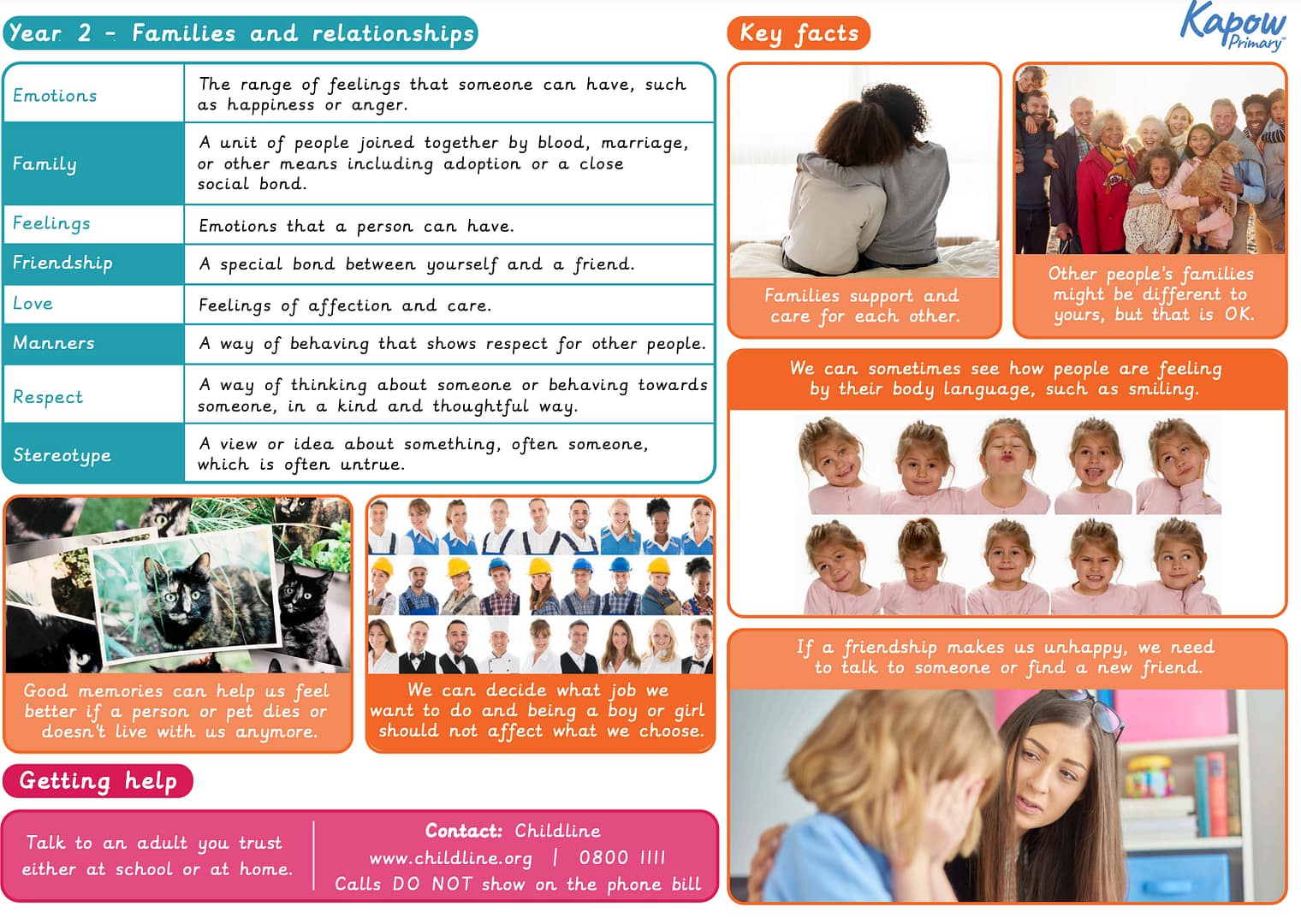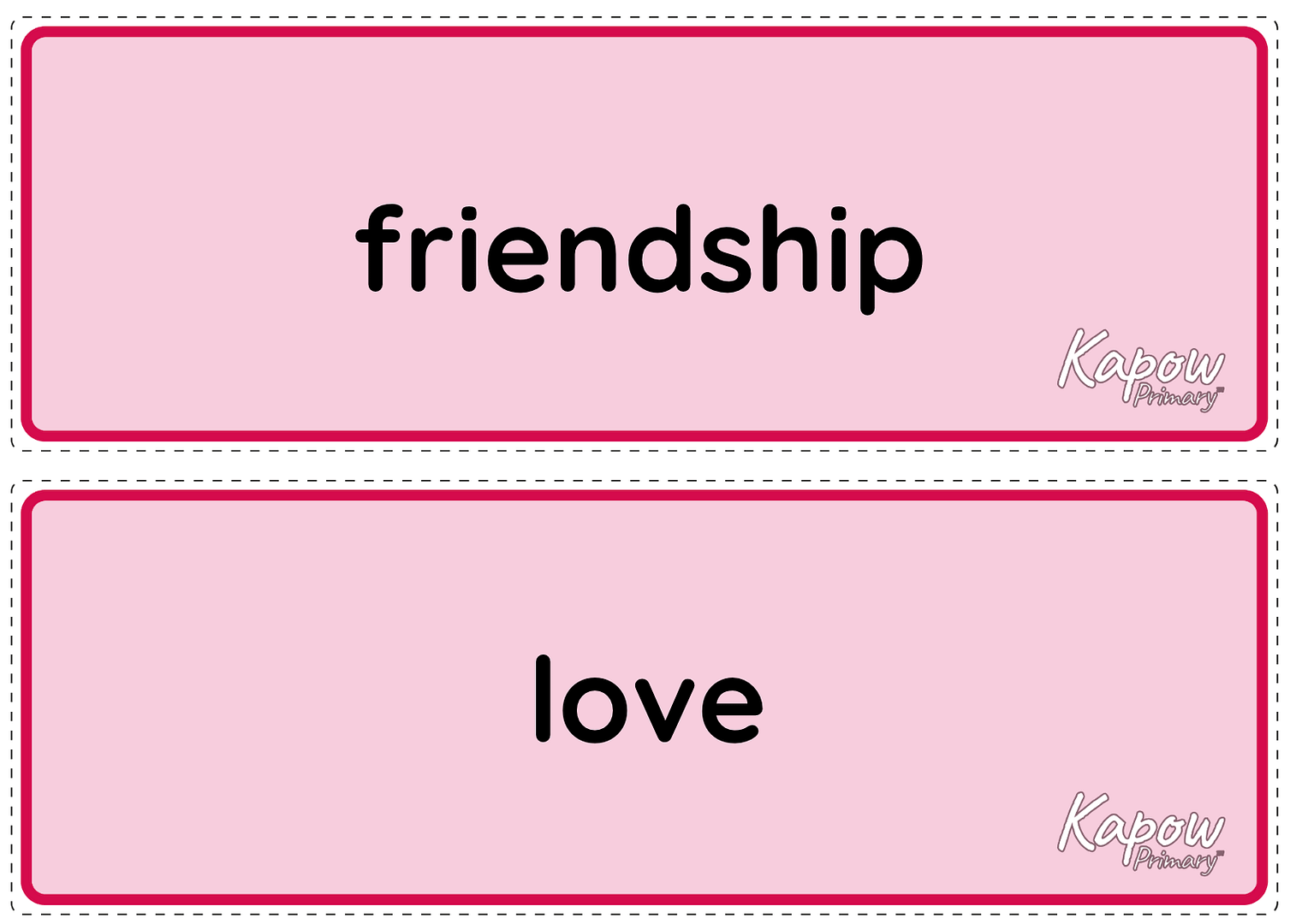Year 2 Families and relationships
This unit hub can be used to inform your medium-term plan and to navigate to related resources.
The Curriculum and Assessment Review final report has been released. We’re reviewing the recommendations and planning for future updates. Learn more
- Subjects >
- RSE & PSHE >
- Key stage 1 >
- Year 2 >
-
Y2 Families and relationships
Unit outcomes
Pupils who are secure will be able to:
- Understand that families offer love and support and that different families may be made up of different people.
- Consider what friends may be thinking and feeling in different situations.
- Recognise some issues that may occur in friendships and which of these may need adult help to resolve.
- Understand that expectations of manners may change according to the situation.
- Know that remembering people who were important to them but are no longer here can cause a mixture of emotions.
- Explain what gender stereotypes are in relation to careers.
Suggested prior learning
Y1 Families and relationships
Get startedLessons
Lesson 1: Families offer stability and love
- To begin to understand the role of the family in their lives.
Lesson 2: Families are all different
- To begin to understand the range of families they may encounter now and in the future.
Lesson 3: Other peoples’ feelings
- To recognise how others show feelings in different ways and how to respond.
Lesson 4: Unhappy friendships
- To begin to understand that some friendships might make us feel unhappy and how to deal with this.
Lesson 5: Introduction to manners and courtesy
- To begin to understand the conventions of courtesy and manners.
Lesson 6: Change and loss
- To begin to understand the process and emotions relating to grief.
Lesson 7: Gender stereotypes – Careers and jobs
- To develop an understanding of stereotypes and how these might affect job/career choices.
Key skills
Related content
Resources
Unit resources

RSE & PSHE
Knowledge organiser: RSE & PSHE – Y2 Families and relationships
Aimed at pupils, a single page which gives key facts and definitions from the unit "Families and relationships".

RSE & PSHE
Vocabulary display – RSE & PSHE Y2: Families and relationships
A display version of the key vocabulary from the unit 'Families and relationships'.
Cross-curricular opportunities
English
‘Pupils should be taught to:
- develop pleasure in reading […] by: being encouraged to link what they read or hear read to their own experiences
- develop pleasure in reading […] by: listening to and discussing a wide range of poems, stories and non-fiction at a level beyond that at which they can read independently
- understand [books they read and listen to] by: drawing on what they already know or on background information and vocabulary provided by the teacher
- understand [books they read and listen to] by: making inferences on the basis of what is being said and done
- maintain attention and participate actively in collaborative conversations, staying on topic and initiating and responding to comments
- listen and respond appropriately to adults and their peers
- participate in discussion about books, poems and other works that are read to them and those that they can read for themselves, taking turns and listening to what others say’
See National curriculum - English key stages 1 to 2.
British values: Mutual respect.

